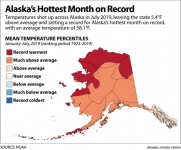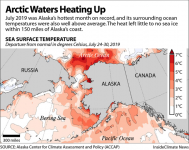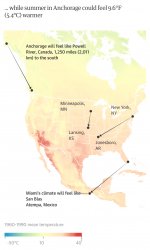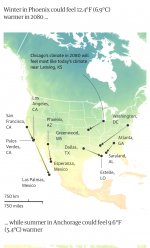^
Your opinion as the one who's intellect is beyond compare, I applause your greatness. Now are you really supposed to be talking politics?
Perhaps it's time to go listen to some music and have a nice bit of Port or Sherry, or whatever you do on your side of the pond. Enjoy your time on this planet my non friend, is my advice for what it's worth.
Dave the polluter..
Edit: My carbon footprint has been so good perhaps I'll have myself a nice tire fire this weekend. One of the pleasures living in the country, you can do whatever you want..
Your opinion as the one who's intellect is beyond compare, I applause your greatness. Now are you really supposed to be talking politics?
Perhaps it's time to go listen to some music and have a nice bit of Port or Sherry, or whatever you do on your side of the pond. Enjoy your time on this planet my non friend, is my advice for what it's worth.
Dave the polluter..
Edit: My carbon footprint has been so good perhaps I'll have myself a nice tire fire this weekend. One of the pleasures living in the country, you can do whatever you want..
Last edited:
You should take a (re)look at post #116 of this thread.
Post 116 is a fine example of selective quotation. Here's the rest of the quoted article:
In fact, if you take the modeling method used to create the dotted line and extend it all the way out to the present, the recent spike in Earth's temperature would be partly smoothed. Kevin Anchukaitis, a paleoclimatogist at the University of Arizona, ran that exact experiment Tuesday and showed his results on Twitter.
"It isn't possible to confidently compare annual observations v. millennial-scale reconstructions," he writes, without accounting for these differences in the data's resolution.
Still, at the end of the day, the conclusion about climate change is the same, Anchukaitis says: "We are taking the planet into a fundamentally different state."
Andrea Dutton, a geochemist at the University of Florida, agrees.
"One to 2 degrees Celsius sounds really small when you hear scientists talk about it," she says. "But it's a big deal when it comes to the climate of the Earth. And it means really enormous changes for coastlines around the world."
This graphic, she says, helps us make the connection between the numbers and their impact on life, even if the cartoon itself isn't perfect.
Bill
Stockton, CA
The ignorance of the past has been replaced by stupidity.
Snafu.....
And I think we haven't even discussed the thermal inertia of the oceans themselves. The oceans take far longer to respond to surface temperature changes than the atmosphere does.I've tried to explain this whole thermal inertia thing to you about 4 times.
I remember reading in a research paper some twenty years ago that the timescale for the ocean temperatures to equilibriate is of the order of several hundred years, maybe over a thousand.
Remember those childhood Wile E. Coyote cartoons? Poor Wile E. was always running out over the edge of a cliff without realizing it. In the world of cartoon animation physics, he would keep running along in a straight line through empty air for several seconds before he realized his predicament - at which point he would stop in mid air, then fall vertically with a whoosh.
Now we (all of humanity) are the coyote. We've run out past the edge of the cliff, but most of us haven't yet realized it. In our cartoon-fake-news world, we'll keep running for a few decades yet, before we realize what's happened. Then the inevitable fall. How deep, how fast, how far will that fall be? That's all that's left to wonder about.
For those who care to look, the signs of catastrophic environmental collapse are everywhere. Ninety eight percent of ground-dwelling insects have disappeared from the Puerto Rican forests in just 35 years ( Insect collapse: ‘We are destroying our life support systems’ | Environment | The Guardian ). With the insects have gone the reptiles and birds that fed on them.
And the Puerto Rican insect collapse is being attributed directly to rising ground temperatures caused by climate change - the forests are protected, so chemical sprays and human encroachment are not the cause of the almost complete eradication of ground-dwelling insects there.
It's not just insects, lizards, and birds, either. Sixty percent of global wildlife populations have disappeared in the last forty years ( Global wildlife populations dropped 60 per cent in last 40 years: WWF - The Globe and Mail ). Climate change plays a role here too, with heat and drought and floods reducing the amount of forage available for herbivores, and reducing carnivore populations as well, since the carnivores that depend on the supply of herbivores.
Many years ago I noticed a disturbing absence of grasshoppers, butterflies, and other insects on my walks. In recent years I've been noticing that not only are there next to no insects, there are also very few birds to be seen or heard. A few days ago I spent several hours in a big park, hiking and then picnicking by a lake, with square kilometres of forest all around. I saw maybe a dozen birds in that entire time, instead of the hundreds I would have expected to see as little as thirty years ago.
That covers things that live on land. How about life in the ocean? Sadly, no better. Fifty percent of fish have disappeared in the last fifty years ( Ocean Fish Numbers Cut in Half Since 1970 - Scientific American )
What we're witnessing is life being wiped off our planet, except for humans, cows, sheep, goats, hens, dogs, and cats. This is happening in the blink of a geological eye, fifty years compared to the three billion years it took for life to evolve. And it's happening because of human activity. Sometimes because of habitat loss, sometimes because of reduction in available fresh water, sometimes directly because of climate change.
But Wile E. Coyote is still running full steam ahead, for now. The solid ground under his feet is gone, though.
-Gnobuddy
You mean the 10MPG muscle cars are not really in man's rational self interest?
Well for any wo/man with shares in either automobile manufacturing or petro fuel production, perhaps - the rest of the world be damned.
Literally
DaveCan - my apologies for the dyspeptic MAGA slur - that certainly does raise a while ‘nother set of issues of the type that the Founders of this fine forum were prescient in forbidding. But one can only get away with doing whatever they want - or think they can find irrefutable facts somewhere to support- for so long before there’s a price to be paid. As I’ve no doubt said before, the arrogance and hubris of “civilized” / industrialized nations never ceases to cause me despair, button reiterate myself and gpauk, Gaia will get alone just fine after humankind is nothing more than biomass compost - it just might take her a few tens of thousands of millennia to fully reboot - something she’s done before.
Last edited:
The ignorance of the past has been replaced by stupidity.
The most succinct description for our age.
I've tried to explain this whole thermal inertia thing to you about 4 times. There's no point in discussing it unless you go away and read up on it a bit and get a feel for the stuff that's going on. <snip>
That (in bold) pretty much wraps it up.I don’t know, but surmise there are short term countervailing effects that are moderating the temperature increases - eg PDO and ADO which we touched on yesterday. The Sun’s output changes over an 11 year cycle. What will not change now however for thousands of years is the additional forcing effect of the excess CO2 in the atmosphere.
Then why did they change the term from "Global Warming" to "Climate Change"?
Then why did they change the term from "Global Warming" to "Climate Change"?
They (who btw?) never did: Global warming vs climate change
Capitalists are trying to save the world to the detriment of their profits... First time I hear of such phenomenon.
that's gotta be a very short list
July 2019: "Alaska's Hottest Month on Record - Melting Sea Ice, Wildfires, and Unexpected Die-offs": Alaska's Hottest Month on Record: Melting Sea Ice, Wildfires and Unexpected Die-Offs | InsideClimate News
-Gnobuddy
-Gnobuddy
Attachments
That (in bold) pretty much wraps it up.
Then why did they change the term from "Global Warming" to "Climate Change"?
More trolling.
July 2019: "Alaska's Hottest Month on Record - Melting Sea Ice, Wildfires, and Unexpected Die-offs": Alaska's Hottest Month on Record: Melting Sea Ice, Wildfires and Unexpected Die-Offs | InsideClimate News
-Gnobuddy
Incredible how the sea temperatures have gone up over the last 10 years in the Arctic. Last year (winter) the Arctic Ocean was 12 F higher than normal in some areas.
I remember doing science at school and learning that the atmosphere had 300 ppm CO2. Kids now go to school and learn it’s 409 ppm 50 years later.
For those interested, here is a seriously good blog on climate change by a PhD physicist.
Not alarmist, but under no illusions that we face planet wide disruption over the coming few thousand years (lots of graphs!)
Clive Best | Science Travel Opinions
Not alarmist, but under no illusions that we face planet wide disruption over the coming few thousand years (lots of graphs!)
Clive Best | Science Travel Opinions
As it is all about modelling and in this case modelling of a very huge and complex real system, it can't surprise that some predictions will fail.
That is the normal way, collect data and adapt the models whenever possible.
And of course there is some scepsis in order if we are really able to restrict any warming effect to the 2 degree goal.
It might be that even stopping all burning of coal, gas and oil will not be good enough, as already to much CO2 exists in the atmosphere and will remain for a long time if we don't find a solution to remove the excess.
Overall it could be a good idea to prepare (means do something) in case that we will not be able to reach the goal or even revert the curse.
That is the normal way, collect data and adapt the models whenever possible.
And of course there is some scepsis in order if we are really able to restrict any warming effect to the 2 degree goal.
It might be that even stopping all burning of coal, gas and oil will not be good enough, as already to much CO2 exists in the atmosphere and will remain for a long time if we don't find a solution to remove the excess.
Overall it could be a good idea to prepare (means do something) in case that we will not be able to reach the goal or even revert the curse.
- Status
- Not open for further replies.
- Home
- Member Areas
- The Lounge
- The Arctic has become warmer by 5 degrees. Australia has snowed.



